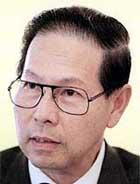The following extracts from an extended interview with the late President Ong Teng Cheong (OTC) in Asiaweek dated March 10, 2000 provide rare insight about what the job entails:
How are the President's duties spelt out?
 OTC: At the first opening of parliament after I was elected, I was given a speech prepared by the government. I read the speech carefully. Besides ceremonial functions, it said that I'm supposed to safeguard the reserves and to help society become more compassionate and gracious. So I decided that, well, if that is what is said in the speech, then that's going to be my job. And I am going to do it. That's what I tried to do. In fact, during the six years I was president, I was very busy.
OTC: At the first opening of parliament after I was elected, I was given a speech prepared by the government. I read the speech carefully. Besides ceremonial functions, it said that I'm supposed to safeguard the reserves and to help society become more compassionate and gracious. So I decided that, well, if that is what is said in the speech, then that's going to be my job. And I am going to do it. That's what I tried to do. In fact, during the six years I was president, I was very busy.What does an Elected President do?
OTC: Well, I got involved in a lot of things. The Istana presidential palace and other places had to be renovated. All this had to be planned and these places got ready one by one, so that ceremonial functions and other business could go on as usual. I had to press the government to finalize the procedures for the protection of the reserves. A lot of the teething problems and misunderstandings were because there was a lack of clearcut procedures ofwhat to do. Towards the end of my term, I pressed the prime minister for a White Paper to be tabled in parliament that would set out all the principles and procedures for the elected president. Then I will announce my decision to step down. I want to get the job done.
The thing is that the elected president is supposed to protect the reserves, but he was not told what these are until five years later. From the day the Constitution was amended in 1991 to provide for an elected president, he was supposed to fulfil that role. My predecessor, Wee Kim Wee, although he was not elected, was supposed to play that role during the last two years of his term. But he did not actively check. So, when I came in in 1993, I asked for all this information about the reserves. It took them three years to give it to me.
How much is a President told?
OTC: I do not know. Don't ask me, because I don't have the answer. I've been asking them. In fact, in 1996, exactly halfway through my term, I wrote prime minister Goh a letter. At that time, everybody was expecting a general election in December or January. After the election, a new government would be sworn in. When that happens, all the reserves, whether past or current, become past reserves and are locked up on the changeover date. As president, I have to safeguard them and they can only be drawn upon with my permission. So I said to Mr Goh: It's already halfway through my term, but until today I still don't know all these figures about the reserves.
Is the President kept informed of developments?
OTC: I wouldn't be able to say that. Even in my last year as president, I was still not being informed about some ministerial procedures. For example, in April last year, the government said it would allow the sale of the Post Office Savings Bank POSB to DBS Bank. In the past, when there was no elected president, they could just proceed with this kind of thing. But when there is an elected president you cannot, because the POSB is a statutory board whose reserves are to be protected by the president. You cannot just announce this without informing him. But I came to know of it from the newspaper. That is not quite right. Not only that, but they were even going to submit a bill to parliament for this sale and to dissolve the POSB without first informing me.
